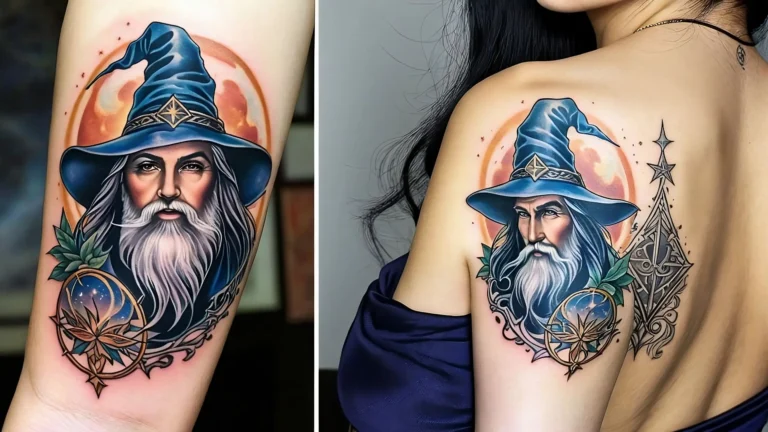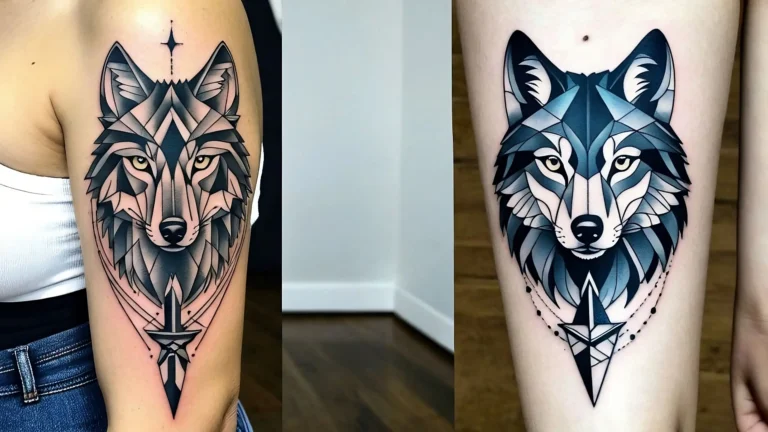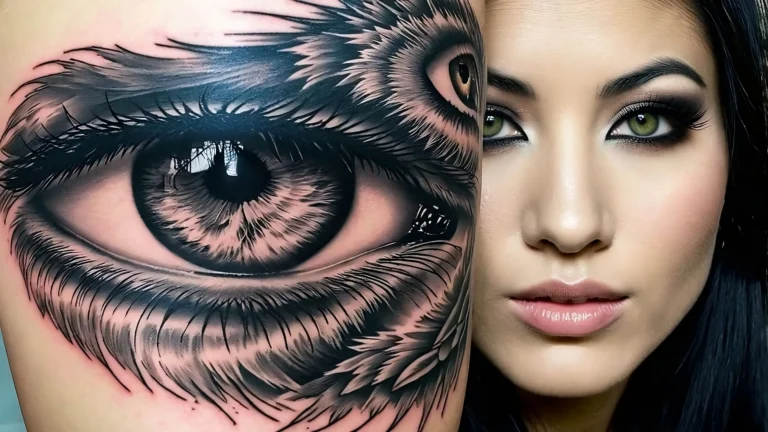[ad_1]
Tattoos have become a prominent form of self-expression for women, often carrying deep personal significance. From intricate designs to meaningful symbols, each tattoo can tell a unique story. Understanding the meanings behind women’s tattoos gives insight into their significance, touching on spiritual, religious, and individual interpretations.
The Spiritual Meaning
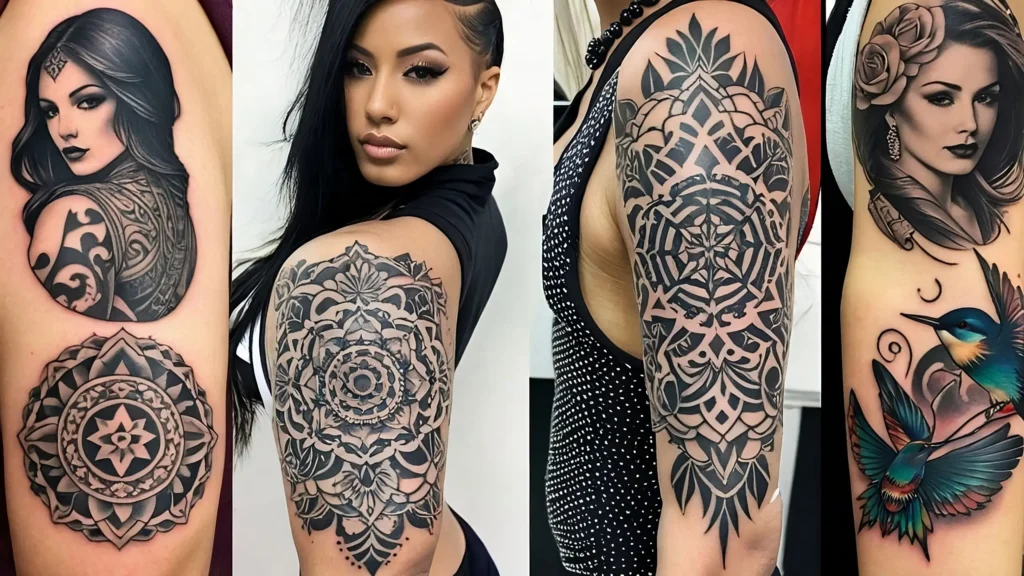
Tattoos often serve as personal talismans or spiritual markers that resonate deeply with a woman’s life journey. Spiritual tattoos can symbolize transformation, protection, or significant life events. Many women choose designs that reflect their spiritual beliefs or experiences, such as lotus flowers, mandalas, or angel wings.
The lotus flower, for example, represents purity and rebirth within various spiritual traditions. It signifies rising above challenges and emerging stronger, making it a popular choice among women who have faced hardships. Similarly, mandalas reflect harmony and balance and are often connected to meditation and mindfulness, encouraging a sense of peace.
Women may also select symbols that represent their personal spiritual journeys, such as runes or astrological symbols. These tattoos can remind them of their values, aspirations, or guiding principles, serving as continuous motivation to remain connected to their spiritual paths.
The Biblical Meaning
For those with religious inclinations, tattoos can hold particular meanings within a biblical context. While the Bible offers varying interpretations of tattoos, many believe they can express faith and devotion. Certain biblical verses inspire designs, such as Psalm 139:14, which reflects self-acceptance and belonging.
In terms of symbolism, some women choose images related to religious stories or figures. For example, crosses, doves, or images of angels can signify faith, hope, and guidance from God. These tattoos may serve as personal reminders of one’s beliefs or as expressions of spiritual identity in a world that can often feel disconnected from faith.
However, some Christians are cautious about tattoos, urging individuals to consider the significance behind their body art. Regardless, for many women, these tattoos encapsulate their relationship with their faith and denote milestones in their spiritual lives.
Who Should Not Get This Type of Tattoo
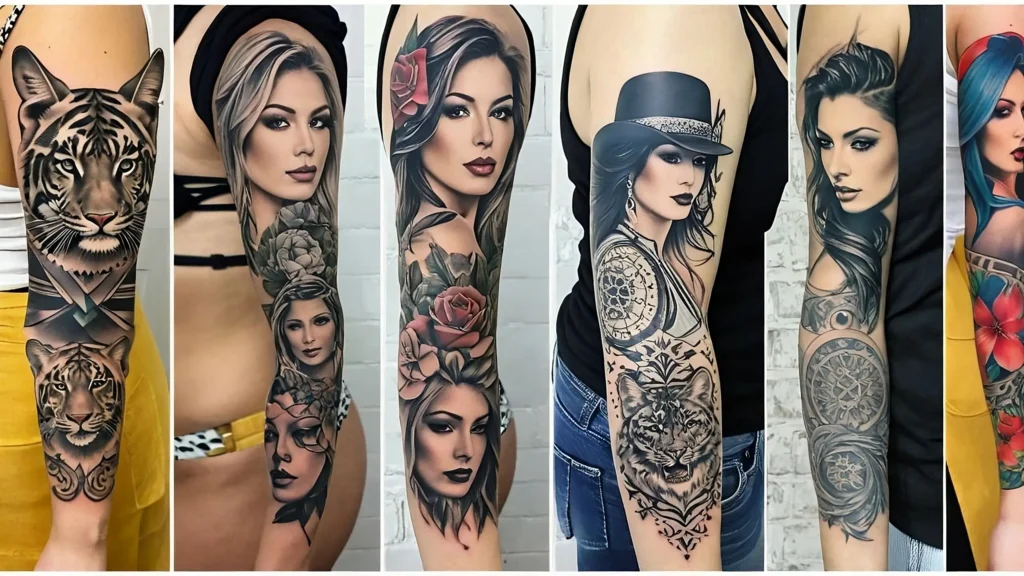
While tattoos can be meaningful, they aren’t for everyone. Some women may struggle with the permanence of tattoos or might experience regret later in life. It’s vital for anyone considering a tattoo to reflect on their motivations and be confident that it aligns with their identity.
Also, women with certain medical conditions or skin sensitivities should approach tattoos with caution. Conditions like eczema, psoriasis, or keloid scarring may complicate the tattooing process and could result in adverse effects. Consulting with a healthcare provider beforehand can help determine whether getting a tattoo is a wise choice.
In addition, societal and career pressures sometimes influence decisions about tattoos. In professional environments that frown upon visible body art, women may decide against getting tattoos or choose to place them in less conspicuous areas to avoid potential discrimination at work.
Other Religious Interpretations
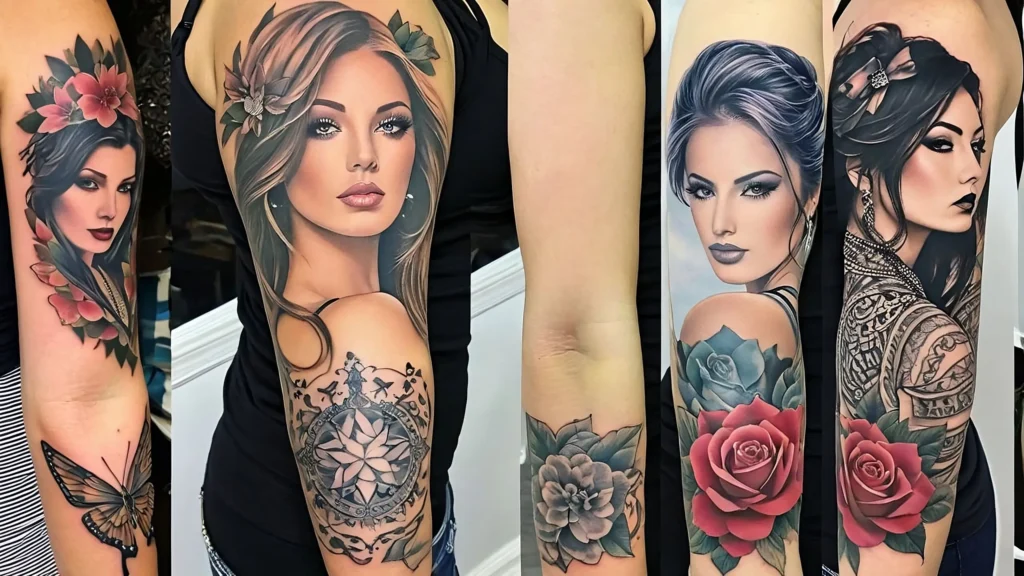
Tattoos vary widely across different religions and cultural backgrounds, each offering its unique interpretations. In Hinduism, tattoos can serve as sacred symbols, with designs often linked to deities or significant spiritual events. Traditionally, henna tattoos, made from natural dyes, are temporary and celebrate special occasions, like weddings or festivals.
In Buddhism, tattoos have become popular as a way to express spirituality and devotion. Many Buddhists choose designs that symbolize peace, resilience, or mindfulness. Tattoos of Buddha or the lotus flower can represent a connection to the teachings of Buddhism.
Conversely, other religions may have prohibitions against tattoos. Islam, for instance, traditionally frowns upon tattoos, associating them with altering God’s creation. Nonetheless, there are individuals within the Muslim community who still choose to express their faith through tattoos, adapting traditional symbols that resonate with their beliefs.
Understanding these diverse interpretations allows women to navigate their choices with empathy and respect for various cultural backgrounds and religious beliefs.
Coverup Ideas if Things Went Wrong
Sometimes tattoos don’t turn out as expected, or personal beliefs and aesthetics change over time. Fortunately, several cover-up options exist for women who want to transform or hide their previous tattoos. One popular method is to incorporate the existing design into a new piece, using creative techniques to blend the two.
For example, if a tattoo appears faded or poorly executed, a skilled artist can add elements like flowers, geometric shapes, or textures to enhance it. This method not only helps conceal the original design but creates a unique, personalized piece of art.
Another option is to layer darker designs over lighter tattoos. Bold colors and intricate patterns can effectively mask unwanted ink. Women may also choose to cover tattoos entirely, opting for larger designs that provide full coverage. Popular imagery for cover-ups includes vibrant floral designs, woodland scenes, or even abstract art.
If covering a tattoo isn’t desirable, removal options like laser therapy or dermabrasion are available. While these methods can be costly and require multiple sessions, they provide a way to eliminate tattoos that no longer reflect one’s identity or preferences.
The Psychological Impact of Tattoos
Beyond aesthetics and cultural significance, tattoos can also have psychological implications for women. Getting a tattoo can be an empowering experience, as it often signifies taking control of one’s body and choices. For many, it serves as a form of self-affirmation, representing personal growth and resilience.
Some women also use tattoos to cope with trauma or loss. By memorializing an important person, event, or life lesson, they create a tangible representation of their journey toward healing. This act can occur as a cathartic release, validating their emotions while fostering a sense of closure.
On the flip side, women may experience regret associated with their tattoos, particularly if they were made impulsively. Regret can stem from various sources, such as changes in personal beliefs, aesthetics, or life circumstances. It’s essential for women to thoughtfully consider the implications of a tattoo, allowing ample time to reflect before making a decision.
Tattoo Trends Among Women
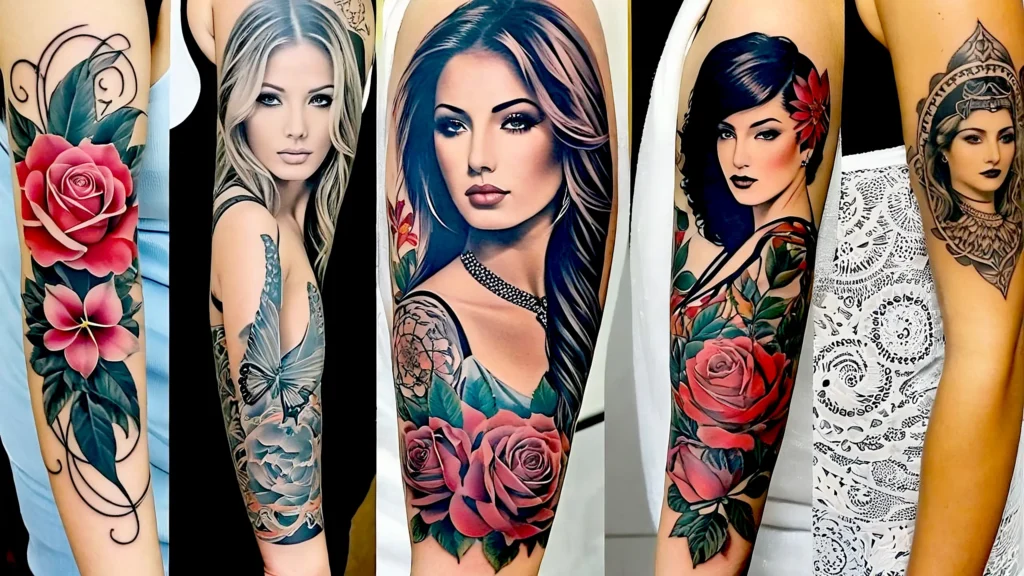
Tattoo trends often evolve, reflecting contemporary culture and personal expression. Some popular styles include delicate line work, watercolor tattoos, and minimalist designs, appealing to women who prefer subtlety and elegance. Floral and botanical tattoos remain perennial favorites, symbolizing growth and beauty.
Moreover, the rise of full-body tattoos has gained attention as women embrace bolder expressions of their individuality. Sleeve tattoos, back pieces, and even full-body artwork have emerged as popular options. The acceptance of visible tattoos in mainstream culture has encouraged women to explore more extensive ink, signifying confidence and liberation.
Social media platforms, especially Instagram, have also played a significant role in shaping tattoo trends. Artists showcase their work online, contributing to the popularity of specific styles and designs. Women can now access a broad array of tattoo inspiration, empowering them to create custom pieces that resonate with their unique stories.
Conclusion
Tattoos have become more than mere body art for women—they embody personal meaning, spiritual beliefs, and cultural identities. The decision to get a tattoo goes beyond aesthetics; it is a reflection of individuality, experiences, and aspirations. Understanding the deeper meanings behind tattoos can help women navigate their choices with intention, ensuring their body art resonates with their true selves.
Whether through spiritual symbols or personal milestones, tattoos can serve as lifelong reminders of the journeys women undertake. As they express their identities, women can embrace tattoos as powerful tools for healing, empowerment, and self-affirmation.
FAQs
1. Are there any health risks associated with getting a tattoo?
Yes, potential risks include infections, allergic reactions, and scarring. It’s crucial to choose a professional artist and follow proper aftercare.
2. What’s the best way to choose a tattoo design?
Consider your personal experiences, interests, or values. Research different styles, and consult with a tattoo artist to brainstorm ideas.
3. How can I maintain my tattoo once it’s done?
Keep it clean and moisturized while avoiding direct sunlight. Following your tattoo artist’s aftercare instructions is essential for proper healing.
4. Can I get a tattoo if I’m pregnant?
It’s generally advised to wait until after pregnancy to ensure the safety of both the mother and the baby, as infections or complications can arise.
5. Are there temporary tattoo options available?
Yes, many women opt for temporary tattoos like henna or airbrush tattoos. These provide a fun way to experiment with designs without the commitment.
[ad_2]


